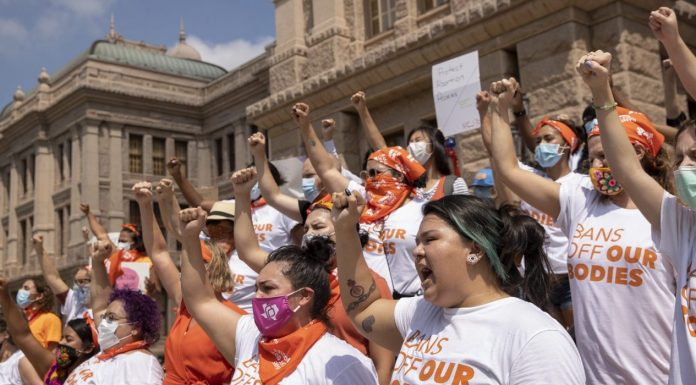(Molly Bruns) U.S. District Judge Robert Pitman has dealt the first legal blow to Texas’s heartbeat bill in a move to block the legislation, Hannity.com reported.
The bill, formally known as Senate Bill 8, has averted several legal pitfalls thus far, but the first stopping point has come with Pitman’s block.
Pitman, who was appointed by former President Barack Obama, wrote a 113-page opinion to make clear his feelings on the bill:
“From the moment S.B. 8 went into effect, women have been unlawfully prevented from exercising control over their lives in ways that are protected by the constitution,” he wrote.
“That other courts may find a way to avoid this conclusion is theirs to decide; this court will not sanction one more day of this offensive deprivation of such an important right.”
The bill, which bans abortions after six weeks or after cardiac activity is detected, has been under heavy fire since its introduction.
Left-wing politicians and pro-abortion activists have been thrown into a into a frenzy, attempting to stop the legislation.
Despite their best efforts, it persisted until Judge Pitman’s ruling. One reason is that the law is written in such a way as to enable private citizens to sue rather than to but the burden of enforcement on the state.
That has made it a challenge for activist judges to find a legal basis for imposing an injuction as has often been the case with past efforts to challenge controversial so-called abortion rights.
“The federal government’s complaint is that the Heartbeat Act is difficult to effectively enjoin,” wrote state Attorney General Ken Paxton’s office in objecting to the lawsuit recently waged by the Biden administration. “But there is no requirement that a state write its laws to make them easily enjoined.”
Following Pitman’s ruling, President Joe Biden chimed in, admonishing the bill:
“This extreme Texas law blatantly violates the constitutional right established under Roe v. Wade and upheld as precedent for nearly half a century,” Biden said in a statement.
Since the restrictions have taken effect on September 1, Texas abortion providers say the impact has been “exactly what [they] feared.”
Practically speaking, Pitman’s decision may have limited impact for abortion providers in the state, who could face a bumpy road ahead as further appeals carve a likely path to the US Supreme Court.
Now that the law has been blocked, it is unclear how quickly any of Texas’ nearly two dozen abortion clinics could move to resume normal operations.
“Abortion care has almost completely stopped in our state,” said Ghazaleh Moayedi, a Texas abortion provider, during a House Oversight and Reform Committee hearing a week ago.

